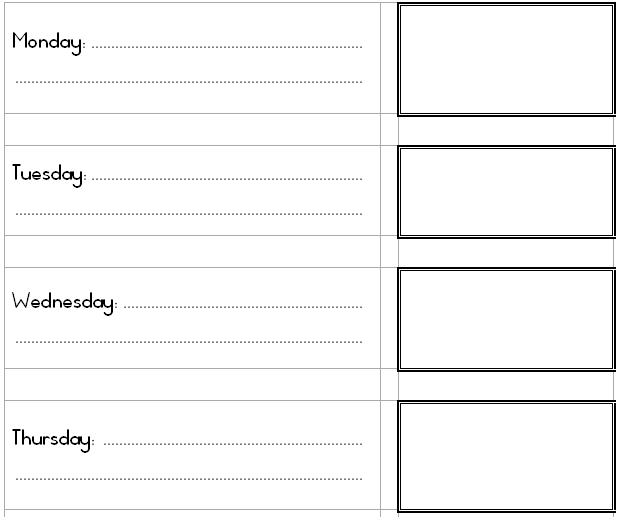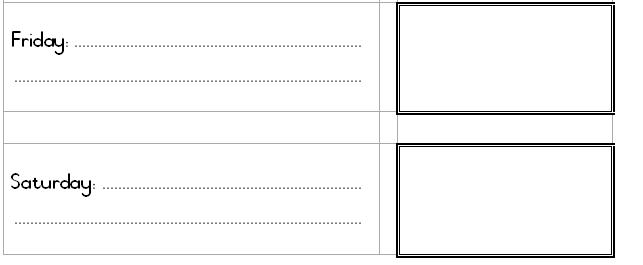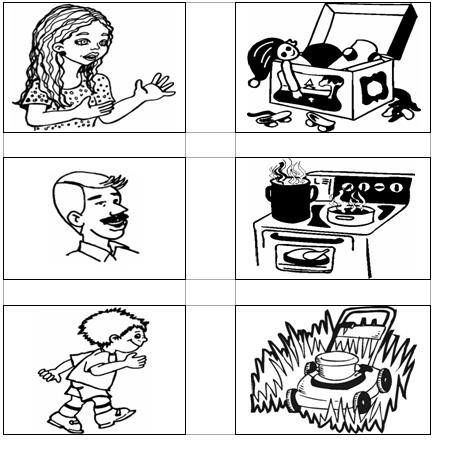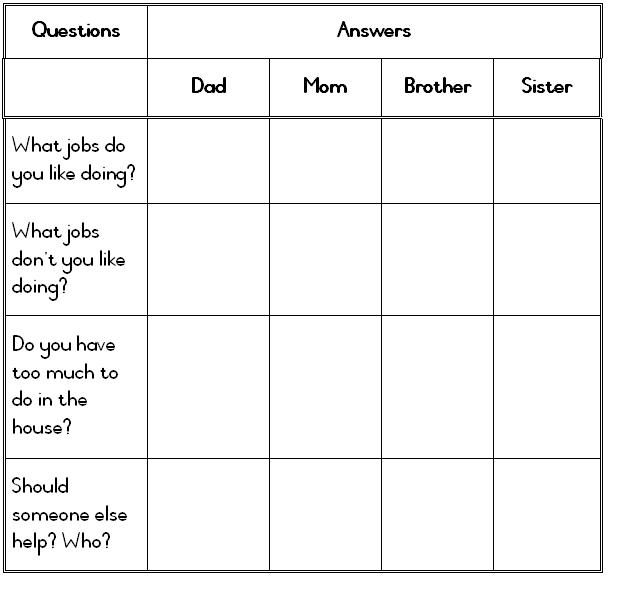| << Chapter < Page | Chapter >> Page > |
Grade 2
MY ROLE IN MY FAMILY
Module 1
OUR DUTIES AS A FAMILY

Think of your own family and answer the following questions .
1. What work does your father do in the house?
2. What does your mother do?
3. What do you do?
4. What do your brothers and sisters do?


Sunday: At last a time to rest! What do you do with your family on Sundays?
Which pictures match each other? Who do you think should do the job? Join the pictures. Colour them in neatly.

While you have been doing your duties, your family has been busy with theirs. Do you think everyone likes doing his particular job?


| Learning Outcomes |
| LIFE ORIENTATION |
| LO 2 |
| SOCIAL DEVELOPMENTThe learner will be able to demonstrate an understanding of and commitment to constitutional rights and responsibilities, and to show an understanding of diverse cultures and religions. |
| Assessment Standards(Ass) |
| We know this when the learner: |
| 2.1 discusses children's rights and responsibilities;2.4 identifies values and morals from diverse South African cultures. |
| lo 3 |
| PERSONAL DEVELOPMENT The learner will be able to use acquired life skills to achieve and extend personal potential to respond effectively to challenges in his or her world. |
| We know this when the learner: |
| 3.4 demonstrates appropriate behaviour in conflict situations; |
Refer to children’s rights according to the constitution.
Keep the diary page that follows for a week. Encourage them to take on a responsibility if they don’t have one. They must still abide by the constitutional rights of children.
Children have the right to be proud of their heritage, traditions and beliefs and the responsibility to respect the beliefs of others.
Make the children aware of their responsibilities as well as their rights.
Discuss the learners’ findings and isolate one problem, e.g.

Notification Switch
Would you like to follow the 'Life skills grade 2' conversation and receive update notifications?